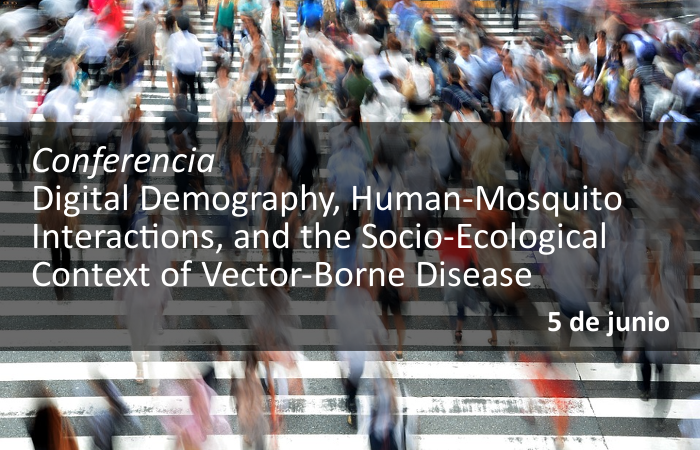Conferencia: Digital Demography, Human-Mosquito Interactions, and the Socio-Ecological Context of Vector-Borne Disease
El próximo miércoles 5 junio de 2019 se celebrará, de 12.00 a 13.30 horas en el salón de actos de nuestra sede, la conferencia denominada Digital Demography, Human-Mosquito Interactions, and the Socio-Ecological Context of Vector-Borne Disease a cargo de John Palmer, profesor titular en el Departamento de Ciencias Políticas y Sociales de la Universidad Pompeu Fabra.
La conferencia es de acceso libre previa inscripción en el siguiente formulario.
Summary:
In this talk I will explain how digital demography is transforming vector-borne disease research. Digital traces and active mobile positioning methods are improving our understanding of human spatial behavior, offering important glimpses into the mobility patterns and human-mosquito biting networks that shape disease dynamics. Networked citizen science makes it possible for ordinary people to identify and report disease-vector mosquitoes wherever they encounter them, and for researchers to quickly validate these reports, adjust for sampling bias, and build high-resolution models of mosquito populations and human-mosquito interaction. In all of this, digital demography is bringing a much needed social science perspective and helping to illuminate the socio-ecological context of vector-borne disease. Drawing on my work in this area, I will discuss these developments and the exciting directions in which I see digital demography headed.
Biography:
John Palmer is a tenure-track professor in the Department of Political and Social Sciences at Pompeu Fabra University, where he is a member of the Sociodemography Research Group (DemoSoc). His research connects human spatial behavior, social inequality, and disease ecology. He has developed methods for collecting and analyzing human trajectories and activity-spaces, and for harnessing citizen science in the public health context.

